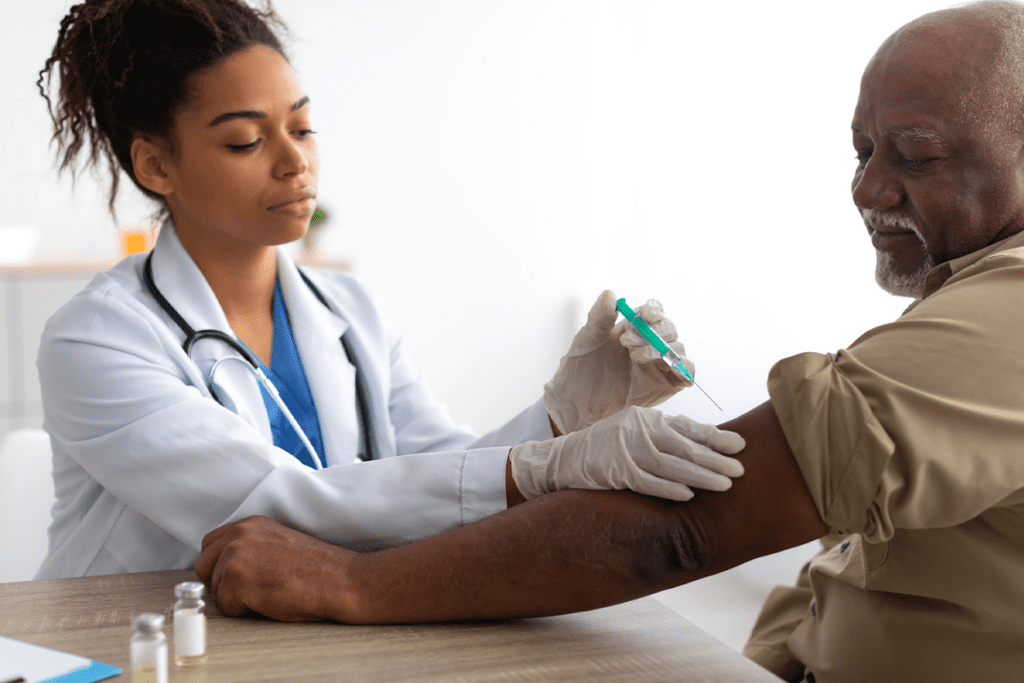
With a vaccine for shingles readily available, no one needs to endure a painful bout of the infection.
Few things can conjure up a sensation of painful discomfort like having experienced an outbreak of shingles. If you are among the one in three Americans likely to suffer a shingles outbreak in your lifetime, then it’s very important to take some time to learn more about it and how you can decrease your chances of getting it.
Shingles (also known as varicella zoster) is a fascinating infection because it represents reactivation of another infection, chickenpox (also known as varicella). Both are caused by the varicella zoster virus, a common childhood infection. In people that get infected with the virus early in life, it can lay dormant in certain parts of their nervous system even after chickenpox has resolved. This virus can then reactivate later in life due to a weakened immune system, thereby causing shingles.
Reasons for a weakened immune system include old age, stress, use of immunosuppressant medications, and other diseases like cancer or human immunodeficiency virus (HIV).
Symptoms and complications
Shingles can present with painful blisters over the distribution of the nerve in which the virus was dormant. Often, people note tingling, itching or pain in the area a few days before the rash appears. Because our nerves remain only on one side of the body, the rash, too, remains on one side of the body and never crosses the midline.
Less commonly, in people with a really weak immune system, it can present with a more widespread rash similar to chickenpox. These blisters also can occur over the face and involve the eye where they can affect vision. The blisters eventually scab in 7-10 days and most patients will have them fully clear up in two to four weeks after they appear.
Somewhere between 10 to 18 percent of people who have shingles will go on to have pain in the area even after the rash is gone. This complication is referred to as postherpetic neuralgia and can last for months to years. Shingles blisters can become infected with bacteria in some people and in very rare cases, shingles can cause inflammation in lungs or brain or even cause death. Also, some people can experience recurrent outbreaks in the future.
Treatment and prevention
Shingles can be treated with medications but it is often started only after patients already experience the painful rash. Fortunately, shingles can be prevented with the use of a very effective vaccine in adults. The recombinant vaccine Shingrix is administered in two doses separated by about 2 to 6 months. Current recommendations support all adults over the age of 50 receiving the vaccine, even if they do not have a known history of chickenpox earlier in life. Adults with weakened immune systems under the age of 50 might also benefit from the vaccine and should discuss their individual risk with their healthcare provider.
Note: An earlier shingles vaccine called Zostavax is no longer available in the United States and its recipients are still encouraged to get a round of Shingrix. Also, vaccination is not recommended if you currently have shingles, are pregnant, or have an allergy to any component of the vaccine.
So keep this in mind: shingles is a painful condition to bear but one that is easy to prevent with vaccination. Talk with your healthcare provider today to see if you could benefit from the vaccine.
Primary.Health vaccination clinics
Protect vulnerable community members from shingles and other vaccine-preventable illnesses with a Primary.Health community vaccination clinic. Easy and accessible, our clinics empower community-based and public health organizations, shelters, nursing homes, and other large groups to keep everyone safe and healthy.
Disclaimer: This blog content and linked materials are not intended as individual medical advice, diagnosis or treatment, and should not be considered as such. Any readers with medical concerns should contact a licensed healthcare provider. This blog is provided for informational purposes only.
